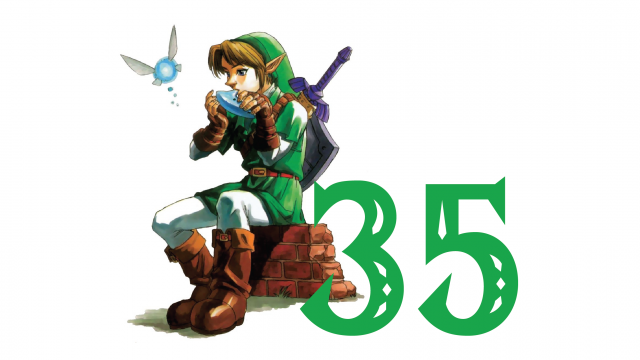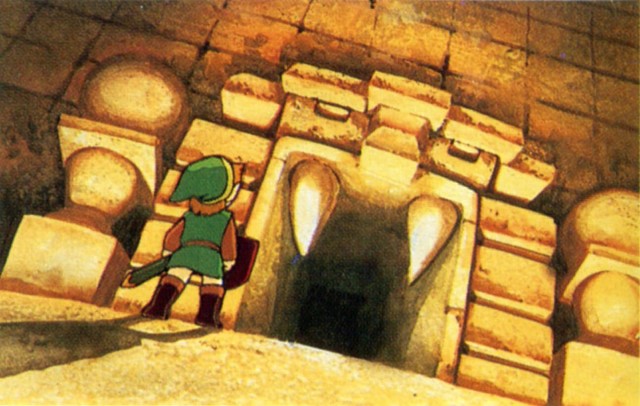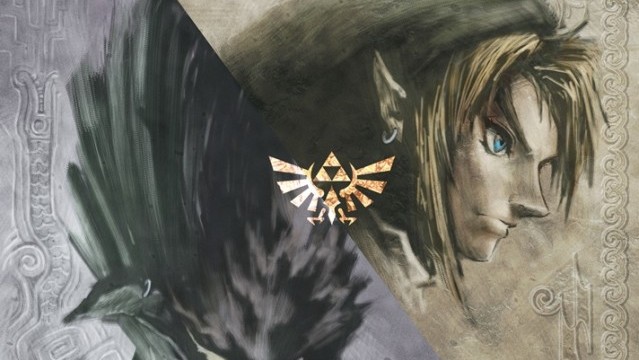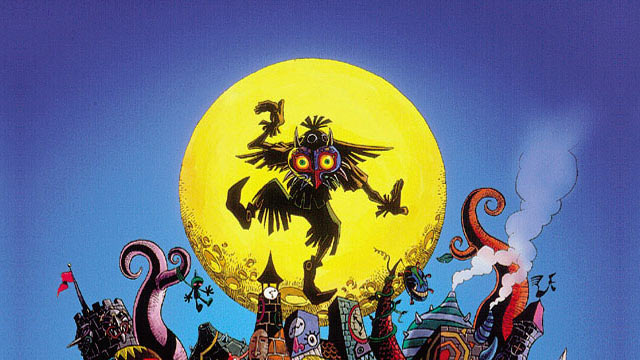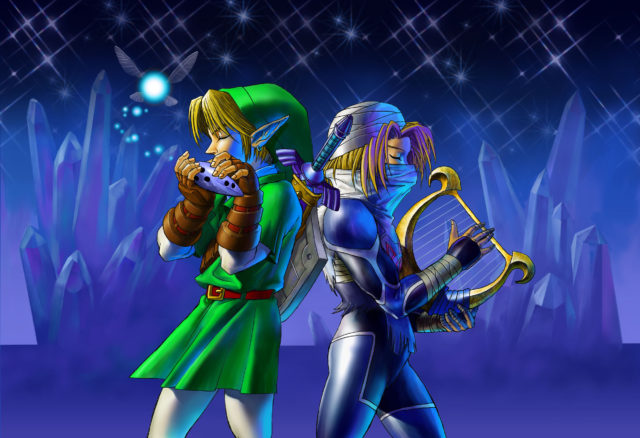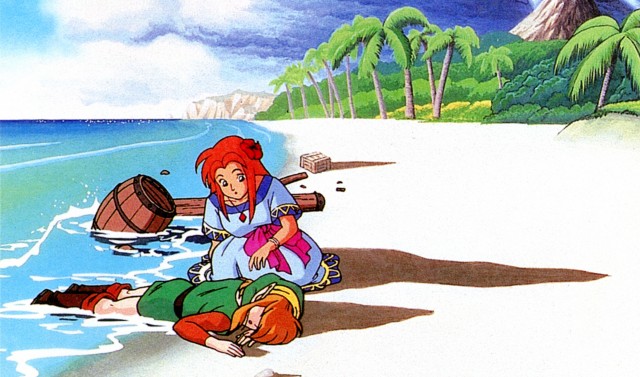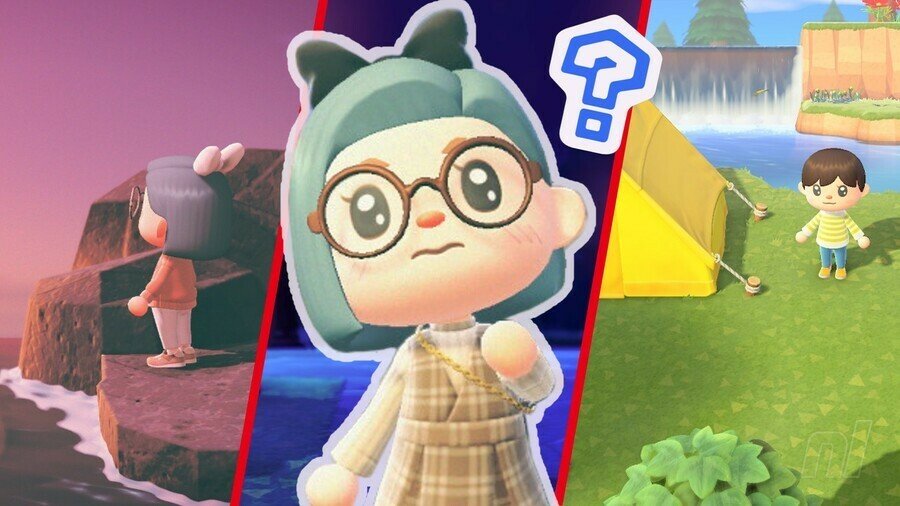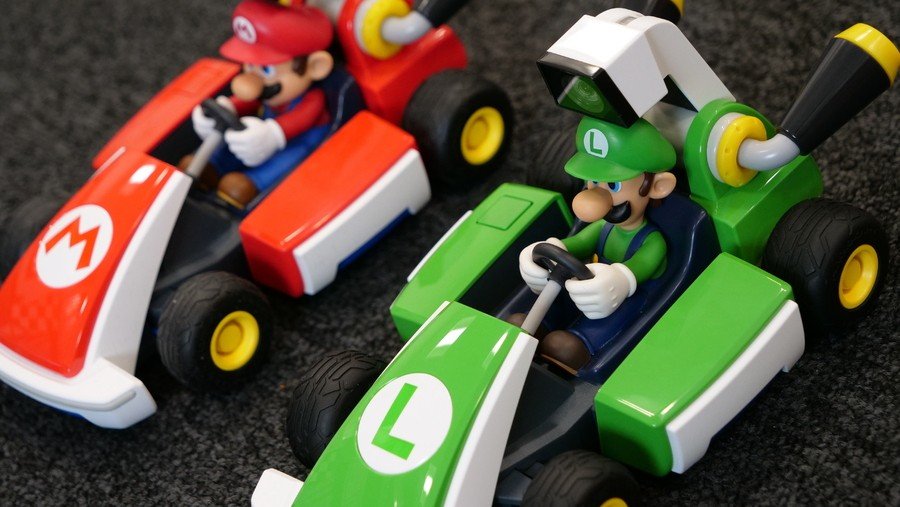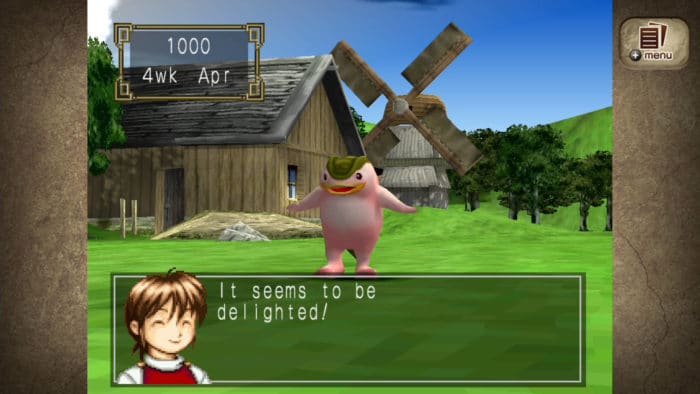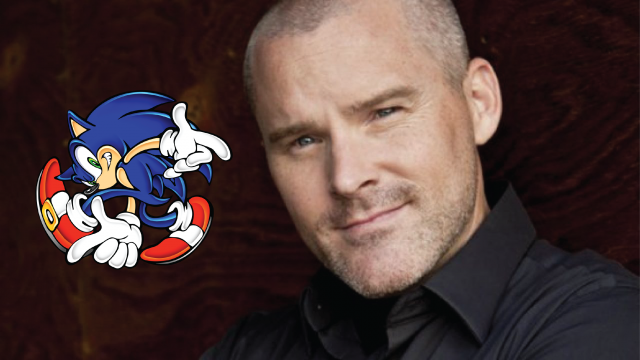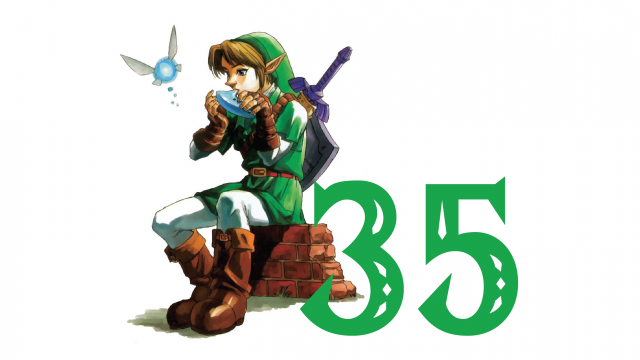
The Legend of Zelda is 35. As this week of celebration for one of the most influential video game franchises ever made comes to a close, the staff has assembled to share their thoughts. We all tackled the following three questions:
- What was your first Zelda game? What impact did it have on you?
- At 35, what role does Zelda play in today’s video game landscape?
- What is your favorite Zelda moment?
Sit back and find out what we have to say about Zelda and its impact on all of us as people and gamers!
Zack Fornaca
The original was my first Zelda game, and one of my first games period. My parents played too, and would ask me to use my little kid reflexes to outmaneuver and kill Darknuts for them. I honestly think the original is better than almost all of its sequels, and the first Zelda makes a strong case for inscrutability and surprise in game design. It doesn’t spoon-feed the player its answers, and I get why most people don’t have the time or patience for something like that, but because I grew up on Zelda and other NES classics I kind of dislike it when games make things too easy or give up all their secrets too readily. In my day, we drew our own maps, uphill, both ways.
Zelda games themselves are still successful, and The Legend of Zelda: Breath of the Wild might end up being one of the most influential games of the whole series, but Zelda has also influenced generations of games at this point. Little bits of classic Nintendo design show up in all sort of games, but tons of great games owe a lot of clear inspiration to one Zelda game or another. Crystalis, Golden Axe Warrior, Landstalker, Golvellius, Secret of Mana, Darkstalkers, 3D Dot Games Heroes, Okami… even games like Shadow of the Colossus and Dark Souls, in their own way. Nintendo could never make another Zelda game and the series would still cast a long shadow.
Unlike the first Zelda game, the second was a little too difficult and my parents shied away from it, but I powered through. The first time I got to the Great Palace (the final dungeon), I was in a cabin in the mountains during a thunderstorm, and during the fight with Thunderbird, a lightning strike took out the power and my game with it. Save file erased. It was like the game had resorted to controlling the weather in order to defeat me. I played from scratch and did eventually beat the game, a bit more wary of the weather, but for as much as I savored the victory it’s the strangeness of that loss that I cherish more.
Achi Ikeda
During my summer vacation into 7th grade, I rented a copy of The Legend of Zelda: Twilight Princess and after returning, immediately purchased a used copy. That summer I spent a month slowly ticking away at the game. When the credits finally rolled, I, embarrassingly, ran to my room, threw myself onto my bed, and bawled my eyes out for thirty minutes. Why? Because the best adventure I had ever been on was over.
A little dramatic, I know, but Twilight Princess was my first big game. Before that, I had played a bit of the Spyro games, a couple Pokémon games, a Kirby game, and a few other GameBoy games. Comparatively, Twilight Princess was an epic adventure with a huge map, detailed graphics in a mature style, and interesting characters — I absolutely adored Midna. After Twilight Princess I really became a gamer. I bought a subscription to Nintendo Power and sought out my next virtual adventure. Soon, I played Okami, and also cried after, followed by Phantom Hourglass and Spirit Tracks. My hunger for adventure remains unsatiated and I continue to seek out adventure over thirteen years later.
At 35, the series has had quite a legacy and continues to inspire gamers of all ages from young children to grandmas. The series has grown over these past thirty-five years while continuing to innovate, yet still capturing the same wonder of adventure. Just when a set pattern seemed to have cemented itself to formulaic battle mechanics and story, Breath of the Wild brought a needed remix to the pattern, proving that they are unafraid of change.
In a time when so many games focus on cinematic scenes, realistic graphics, and making the player feel cool, Zelda plays the important role of being different. Especially within the adventure genre. When being an adventure games mean skill trees, quests, crafting, and sneaking in bushes, Zelda plays the role of reminding us, gamers and developers, that we shouldn’t become too fixed in what we consider a genre, an adventure game, or even a video game.
How to pick a singular moment within a series spanning thirty-five years and over twenty-five games? Instead of a moment within a game, I’ll instead reminisce on the moments Zelda has created for me outside of games. Was it when I introduced Twilight Princess to my then best friend and helped her through the puzzles? Or when we later waited in line for the release of Skyward Sword years later? Maybe it was all the times I made new friends by whistling Zelda tunes in public? Or playing “multiplayer Zelda” with my boyfriend for the first time five years ago where we each put a hand on a singular GameCube controller and play Wind Waker? Or maybe it was when my whole family gathered around after finally getting our hands on a Switch and playing Breath of the Wild for the first time? My family literally made a makeshift shrine for the console while waiting for everyone to come home (we have an odd sense of humor). The Legend of Zelda series for me, and likely many others, doesn’t have moments. It creates moments.
Nick Dollar
I can’t pinpoint which was the first Zelda game I played myself as I often watched my brother play games but The Legend of Zelda: Link to the Past, Ocarina of Time, and Oracle of Seasons/Ages are definitely the most memorable to me. Each of these games stand out because of how not only each of the dungeons are cleverly designed, but also how the world outside the dungeons becomes a puzzle to interact with as well.
The landscape of video game development has shifted quite a bit over 35 years—Zelda is still a big name, but innovative and clever gameplay can be found in more and more games nowadays. My tastes for games have evolved over the past 35 years as well, so while I may not be drawn to current Zelda games as much as I once was, I still know that the series has paved the road for a lot of the titles that I love.
I can’t pinpoint a singular moment for me that is my favorite, but there are quite a few memorable ones from my personal favorite Zelda, Majora’s Mask. Each time you get one of the main three masks that transform you it was incredible having new abilities and attacks, as well as a whole new instrument! I remember swimming around in the great bay as a Zora for a good 20 minutes just enjoying the mobility, and the same is true once I got the Goron mask, just rolling around Termina Field in circles.
Angela Marrujo
Despite growing up playing Nintendo games exclusively, I didn’t play a Zelda game until 1998, when The Legend of Zelda: Ocarina of Time released. My brother Robert (yes, Nintendojo’s very own) got it for Christmas that year, and I have distinct memories of watching him play through the Deku Tree for the first time. Ocarina looked like no other game I’d played before, not even Super Mario 64, and felt truly magical. I was hooked. I’d spend so many hours playing sometimes that I remember falling asleep while exploring Zora’s Domain and waking up when my face hit my controller in my hands.
Ocarina’s Hyrule was beautiful, lonely, and mysterious, and it captivated me. Link felt like the ultimate hero and I admired his courage, and I thought (and still think) that he looked so incredibly cool in battle. To this day, Adult Link remains my favorite iteration of Link, and I feel that his character design hasn’t been topped since (even though Twilight Princess Link comes pretty close).
I always loved to draw, and I started carrying around the game’s official Nintendo Power player’s guide so I could try my hand at recreating the concept art. I carried it around so much that the front cover started to fall apart. But it sparked in me a strong desire to be a video game artist when I grew up, which I’d later learn was a real job with an actual title: concept artist. Once I got to high school I enrolled in AP Studio Art in both my junior and senior years (enabling me to build up an even stronger portfolio for the exam), dead set on pursuing my dream to become a video game concept artist.
Life took me in a different direction when I got to college and I ultimately changed my major and have found myself in a totally different career, but Ocarina wound up having such a strong impact on me that it influenced the direction I thought my life would take throughout my childhood and teenage years. The Zelda series would go on to become my favorite video game franchise, and Ocarina more than any other game has shaped my gaming preferences. I had a lot of formative gaming experiences growing up — Pokémon Red and Blue, Super Mario World, Mega Man X, TMNT: Tournament Fighters, to name a few — but none of them can compare to the way Ocarina affected my opinions on what a great game should be and live up to (though perhaps it’s unfair of me to expect other games to live up to the one game I feel is sheer perfection).
I could write an entire piece on why The Legend of Zelda: Ocarina of Time holds a special place in my heart and is my favorite game of all-time. But it’s difficult to convey the awe I felt when seeing Young Link on the screen for the first time, or the feeling eight-year-old me had connecting with Link being a little kid surrounded by a very big world. The music, the characters, the lore — no game will ever have an impact on me the way Ocarina of Time has.
Robert Marrujo
When I think about the first Zelda game I played, I have difficulty remembering whether or not it was The Legend of Zelda: Link’s Awakening or The Legend of Zelda: Ocarina of Time. I was pumped for Ocarina because Nintendo Power was publishing so many previews of it for months on end, so it’s possible my child-brain had glommed onto the fact that there was a Game Boy Zelda just sitting there ready for me to play. I think, though, that Ocarina was likely the true first Zelda game that I ever played. Angela talked about watching me play Ocarina on Christmas morning and believe me, I remember it too—not just because it was stunning and unlike anything I’d ever played, but also because I was frozen with fear the first time I saw a Skulltulla dangling from the ceiling! I’d waited years to play Ocarina and sincerely believed I’d never beat the game because my fear of spiders is so potent. I eventually did get past my apprehension towards those polygonal arachnids and wound up beating the game, something I have done many, many more times in the years since.
I have a very fond memory of being at E3 2016 and waiting in line to play The Legend of Zelda: Breath of the Wild for the first time. I waited three-and-a-half hours to experience 30 minutes of gameplay. At the time, Breath of the Wild was only known to be a Wii U game—Switch hadn’t even been announced yet. Somehow, despite being an upcoming release on the last-place Wii U and the only title Nintendo had brought to the show floor, Breath of the Wild dominated. Dominated. I waited all those hours because Breath of the Wild was so magically mesmerizing that it made Nintendo the number one draw at E3 that year. Everyone wanted to play it. Sure, it’s been a few years now since Breath of the Wild launched, but the brilliance of that game and its design remains a source of inspiration throughout the industry. Ironically owing to how it skewed closer to the freedom of exploration established in the very first Zelda game on NES. I guess this is a roundabout way of saying that The Legend of Zelda has never slowed down, and fans and creators the world over are waiting with baited breath to learn more about Breath of the Wild 2, the latest sequel in a series that’s almost old enough to be having a midlife crisis. Zelda is video games—Zelda is what makes this medium the wonderful thing that it is.
I guess if I have to choose… I still can’t pick a single Zelda moment to talk about. So, I will instead quickly discuss two. The Legend of Zelda: Link’s Awakening ends with the realization that everything that had happened in the game up to that point was nothing but a dream. As Link returns to reality, however, the Wind Fish can be seen soaring overhead, casting some doubt as to whether or not the adventure was truly nothing but a figment or perhaps something that fits somewhere in between reality and fiction. For me, what was more impactful was the notion that everyone Link had ever met or seen in the game was someone he’d never see again. The notion left me melancholy and is something that I mull over a lot when I think about what awaits us all once we’ve passed on. The other Zelda moment that stands out to me is meeting Link’s family in The Legend of Zelda: The Wind Waker. Link’s sister, Aryll, and his grandma made me think of my own sister and our grandma Angela. It was just a quirky moment where the game world felt like it was overlapping, if only slightly, with my own life. The similarities plugged me into Wind Waker in a different way than other Zelda games have, which is part of the reason it’s one of my absolute favorite installments in the series.
There you have it! What do you think, folks? How would you reply to these questions? Why not answer down in the comments or online and let us know!
If you’d like to read more about The Legend of Zelda, check out our retrospective where we break down every game released in the series so far:
- The Legend of Zelda 35th Anniversary Retrospective (1986-2000)
- The Legend of Zelda 35th Anniversary Retrospective (2001-2004)
- The Legend of Zelda 35th Anniversary Retrospective (2004-2009)
- The Legend of Zelda 35th Anniversary Retrospective (2011-2013)
The post Round Table: Celebrating The Legend Of Zelda At 35 appeared first on Nintendojo.
